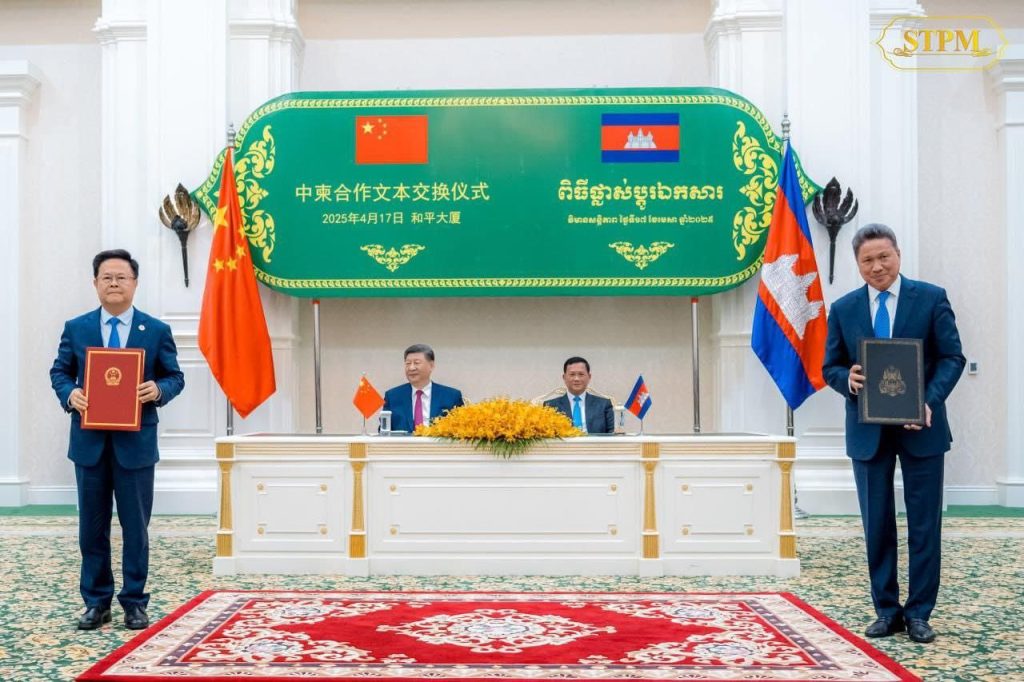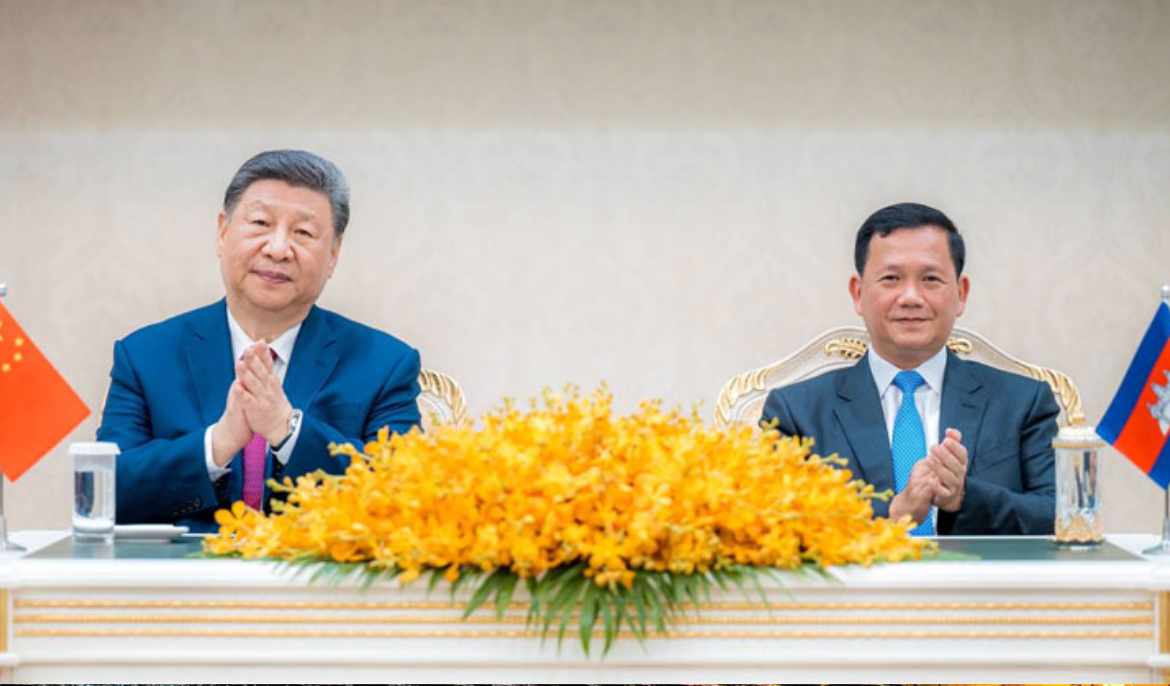Cambodia and China signed 37 cooperation documents on the evening of April 17, under the patronage of Cambodian Prime Minister Hun Manet and Chinese President Xi Jinping, who is on his second official state visit to the Kingdom.
Cambodia Investment Review
President Xi Jinping’s state visit results in wide-ranging deals on trade, infrastructure, and investment, including support for Cambodia’s high-income status goal by 2050.
According to an official document released by Cambodia’s Ministry of Foreign Affairs and International Cooperation, the state visit of Chinese President Xi Jinping to Cambodia from April 17–18, 2025, resulted in the signing of 37 cooperation agreements spanning key sectors including trade, infrastructure, education, energy, tourism, and strategic connectivity.
The high-level visit—conducted at the invitation of His Majesty King Norodom Sihamoni—was described as a milestone in reaffirming the “iron-clad” friendship between Cambodia and China and advancing their Comprehensive Strategic Partnership under the joint vision of building a Cambodia-China Community with a Shared Future in the New Era.

Trade, Industry and Corridor Development
Central to the agreements is the implementation of the Diamond Cooperation Framework, with both countries committing to fast-tracking two key corridors: the Industrial and Technological Corridor and the Fish and Rice Corridor. These initiatives are intended to modernize Cambodia’s industrial base, increase agricultural productivity, and raise standards in connectivity and logistics.
The two sides also pledged to build a secure and stable industrial supply chain, with emphasis on high-standard economic and trade cooperation zones, optical cable networks, warehousing facilities, and multimodal transport systems.
China further reaffirmed support for the Sihanoukville Special Economic Zone, encouraging more Chinese enterprises to invest in Cambodia and help drive industrialization in Preah Sihanouk province. Other large-scale commitments include backing for the Funan Techo Integrated Water Resources Management Project and the planned 900 MW LPG power plant in Koh Kong.

Support for Trade Liberalization and Economic Integration
On trade policy, both governments reiterated support for an open, transparent, and rules-based multilateral trading system. They committed to advancing regional integration through key frameworks such as the Cambodia-China Free Trade Agreement, ASEAN-China Free Trade Area, Regional Comprehensive Economic Partnership (RCEP), and the upcoming ASEAN-China Free Trade Area 3.0 Upgrade Protocol.
China applauded Cambodia’s political and economic progress, particularly its goal to attain high-income status by 2050. In response, both countries agreed to deepen cooperation within the Belt and Road Initiative and align their agendas with Cambodia’s Pentagonal Strategy for development.
Broadening Investment and Multilateral Cooperation
The 37 agreements also cover cooperation in agriculture, customs, quarantine, health, tourism, human resources, media, and education. Additionally, several public-private and business-to-business agreements were signed to facilitate private sector engagement and joint development projects.
China expressed its continued support for Cambodia’s development goals and efforts in regional diplomacy. Cambodia, in turn, voiced strong support for China’s Global Development Initiative (GDI), Global Security Initiative (GSI), and Global Civilization Initiative (GCI)—highlighting shared priorities in sustainability, digital development, and cross-border security.

Looking Ahead: A Shared Future Vision
Both countries concluded the visit by committing to deepen exchanges across political, economic, and cultural domains. Key areas include joint tourism promotion—designating 2025 as the “Cambodia-China Year of Tourism”—as well as efforts to increase scholarships, enhance youth exchange mechanisms, and support think tank and sister-city cooperation.
The visit culminated in a joint statement on building an All-Weather Cambodia-China Community with a Shared Future in the New Era, with a focus on implementing the three global initiatives proposed by China.
As Cambodia continues to position itself as a rising regional economy, and China expands its global partnerships, this high-level state visit is expected to unlock new opportunities for bilateral trade, infrastructure development, and long-term investment.






